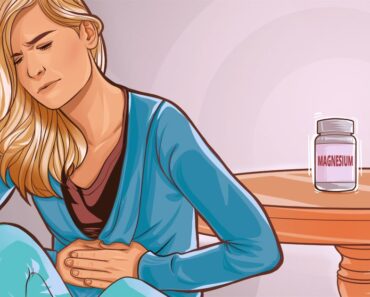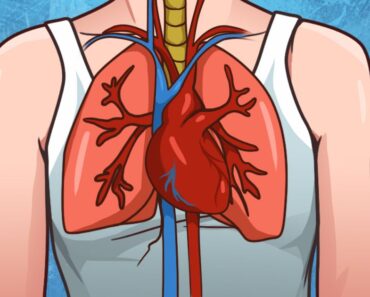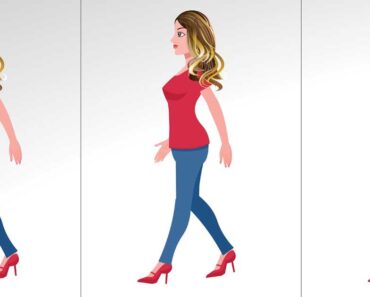Kidneys play a crucial role in maintaining our body’s health. They are responsible for producing red blood cells, controlling blood pressure, cleaning the body’s organs, eliminating excess water, and regulating important minerals in our blood. It is vital to reduce the risk of kidney disease by adopting healthy habits and avoiding harmful ones.
Here are the most common habits that can cause serious harm to your kidneys:
1. Do not hold your pee.

© SHUTTERSTOCK
Failing to empty your bladder on time is the primary cause of kidney problems. If you regularly resist the urge to urinate and the urine stays in your bladder for an extended period, bacteria will quickly multiply, leading to urinary tract infections and urinary incontinence.
2. Sitting for a long time.

© SHUTTERSTOCK
Physical activity is typically linked to improved blood pressure and normal glucose metabolism, both of which are essential for good kidney health. Spending long periods without movement increases the risk of developing kidney disease by 30 percent. If you spend more than 8 hours in a chair at work, it is recommended to lead an active lifestyle at home, with exercise at least three times a week and exploring your surroundings.
3. Overtraining

© SHUTTERSTOCK
Exerting too much effort for an extended period can lead to rhabdomyolysis, which is a condition where the muscles are damaged, and the contents of dead fibers flow directly into the bloodstream. This can result in severe health problems such as kidney failure. If you have recently increased your training levels and experience muscle pain and dark-colored urine, seek medical advice from a nephrologist.
4. Overusing painkillers

© SHUTTERSTOCK
While anti-inflammatory drugs such as aspirin and ibuprofen are generally safe, excessive use can cause kidney damage and even kidney failure. This is because over-the-counter painkillers reduce blood flow to the kidneys and impair their function, particularly in cases of kidney disease. Even if you are in severe pain, keep in mind that painkillers should only be used for a short duration and at the lowest possible dose.
5. Not drinking enough water

© SHUTTERSTOCK
Adequate hydration helps the kidneys produce urine, which eliminates toxins and sodium from the body. When you don’t drink enough fluids every day, this can result in serious health problems, such as the formation of painful kidney stones. In general, 1.5-2 liters of water per day is sufficient to maintain kidney health. Keep in mind that not all drinks are equal, and pure water is the best option. You can check if you are drinking enough water by observing the color of your urine – it should be light yellow. A darker color may indicate kidney disease.
6. Sleeping in and not getting enough sleep

© SHUTTERSTOCK
Getting a good night’s sleep is crucial for overall well-being and health. Our sleep and wake cycles regulate kidney function, and the tissues of this organ are replenished while we sleep. Lack of sleep can disrupt this process and increase the risk of kidney damage. Insufficient sleep can also lead to atherosclerosis, the hardening and blockage of arteries, causing elevated blood pressure, overburdening the kidneys, and eventually leading to kidney failure.
7. Drink diet soda

© SHUTTERSTOCK
Health experts believe that there is a strong link between diet soda consumption and kidney-related issues. In 2009, a study showed that over 3,000 women who drank two or more sodas a day experienced a rapid decline in kidney function. In contrast, sugar-sweetened drinks did not produce the same effect.
8. A lot of meat and other meat products

© SHUTTERSTOCK
Consumption of animal proteins results in many levels of acid within your blood, which could cause acidosis, which is a condition where your kidneys cannot maintain your body’s pH in the right balance. This condition can cause serious digestive problems and chronic kidney problems as time passes.
The daily recommended consumption of proteins is around 1-1.6 grams per kg body mass. Therefore, instead of eating much meat, consume more vegetables and fruits and incorporate different proteins such as eggs, beans, fish, and nuts.
9. Too much salt intake and sugar

© SHUTTERSTOCK
The kidneys metabolize Ninety-five percent of sodium you consume in food. Therefore, if you consume too many salty foods, your organs will have to work hard to eliminate sodium excess. In the end, this could result in the loss of function of your kidneys, and it could also cause the retention of water within your body, which could, in turn, increase blood pressure.
The frequent consumption of sugar can also lead to a rise in blood pressure, lead to obesity, and increase the risk of developing diabetes. These are the main reasons for kidney problems.
The recommended amount for salt amounts to approximately 3.75 grams (or 0.75 tsp) per day and 25 to 38 grams (or 6-9 tsp) for sugar. For a healthy kidney, be aware of the ingredients of the products you buy in the supermarket. Processed or packaged food items typically contain a lot of sugar and sodium.
10. Ignore common infections
When you are suffering from a common disease like a cough, a cold or tonsillitis, or flu, your body creates proteins called antibodies to fight. The molecules typically are found in the filters of your kidneys and can result in inflammation. If the condition persists for a long period, the kidneys may be severely damaged.
To ensure your kidneys are protected, always treat bacterial infections appropriately, take time off from work, rest enough, and take antibiotics when required.
are you a victim of any of these behaviors? Do you think it would be difficult to rid yourself of these habits? Let us know your thoughts in the comment section!



